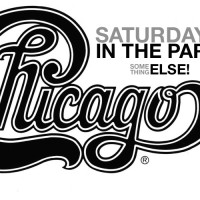As one of the key elements of Chicago’s ’80s renaissance, Bill Champlin’s vocals burst out of the gate on the James Pankow-penned “Follow Me.” What an impressive debut it was! Evolving from Pankow’s take on baroque trumpet fanfares, “Follow Me” grew into a beast of its own thanks to what is perhaps one of the best horn charts Chicago has recorded since Terry Kath’s passing.
Following that, Chicago seemingly lost its edge. Donnie Dacus, while a decent singer, lacked the soulful grit of Terry’s vocals. So, when Bill Champlin’s burst out on this Side 2-opening song from 1982’s Chicago 16, it was a welcome addition. While he’d had a turn sharing vocals with Peter Cetera on “Waiting For You To Decide,” “Follow Me” was Champlin’s first solo vocal contribution.
Elsewhere, David Foster’s choices are unmistakable throughout most of Chicago 16, but “Follow Me” serves as a statement that Foster hadn’t fully wrested control of the band: There was still some of the classic James William Guercio-era Chicago bubbling under the surface.
“Follow Me” also serves as an invitation to fans to follow Chicago into a new decade, on a new musical adventure. Some of the faces had changed over the years, yet the nucleus of the band was still there – and they still had more to say, more music to share with the world.
“Follow Me” is perhaps the best uptempo track on Chicago 16, owing largely to both the Pankow-penned horn chart and Bill Champlin’s take-no-prisoners vocal. Some might argue that “Follow Me” is the closest Chicago got to their classic sound during David Foster’s tenure as their producer through the late ’80s.
He seemed to exert more of his own stylings and influence into 1984’s Chicago 17 and 1986’s Chicago 18. As enjoyable as they may have been to some, and as aurally pleasing as they might have been, those albums were more like “The Music of David Foster as Performed by Chicago” than the band’s typical studio projects.
All that being said, if not for this era, many fans might never have discovered Chicago’s earlier, more musically adventurous material. For all the perceived faults and criticisms of Foster’s time with the group, it captured the ears of a whole new generation of fans.
These are the albums that hooked this listener, even as the classic material of the Guercio years kept me coming back for seconds … thirds … fourths … hundredths. If not for Foster and songs like “Follow Me” first catching my ear, I might never have discovered earlier masterpieces like “Introduction,” “Ballet for a Girl in Buchannon,” and “Dialogue Pts. 1 & 2.”
And for that, Chicago owes a tremendous debt of gratitude to David Foster.
- Kahvas Jute – ‘Wide Open’ (1970): Antipodean April - April 28, 2024
- Dragon – ‘O Zambezi’ (1978): Antipodean April - April 21, 2024
- Cold Chisel – ‘Cold Chisel’ (1978): Antipodean April - April 14, 2024


